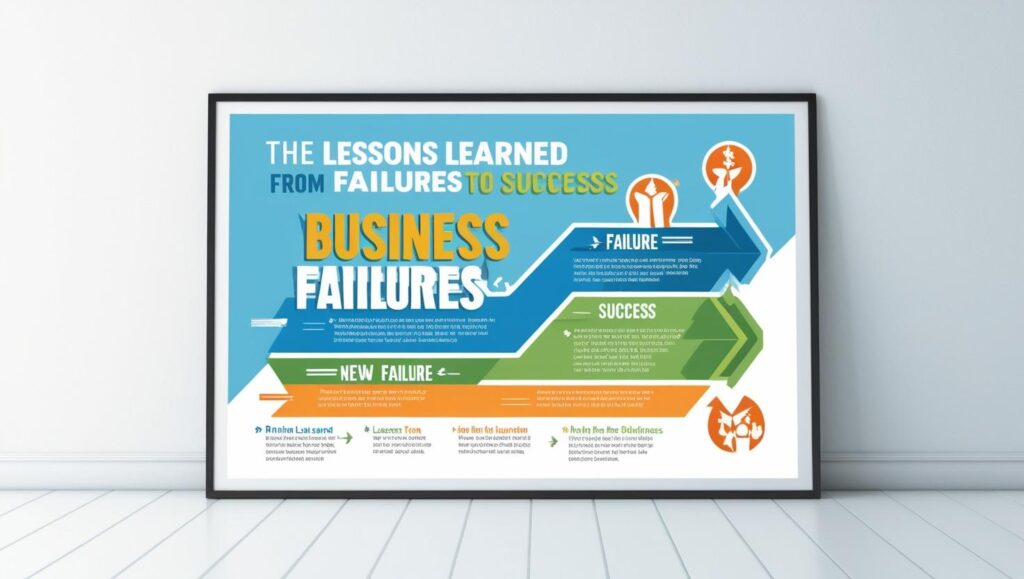Introduction
Business failures are an inevitable part of the entrepreneurial journey. Even the most successful entrepreneurs have experienced setbacks and failures along the way. However, it is how we learn from these failures that truly matters. As the renowned entrepreneur, Thomas Edison, once said, “I have not failed. I’ve just found 10,000 ways that won’t work.”
The Importance of Feasibility Studies
One of the key lessons from past business failures is the importance of conducting thorough feasibility studies. A feasibility study is a detailed analysis that assesses the viability of a business idea by examining market demand, operational feasibility, and financial viability.
This step is crucial in identifying potential risks and rewards early on, allowing entrepreneurs to make informed decisions. For instance, a feasibility study can help determine whether a proposed project has enough market demand, the necessary financial resources, and the right technology to succeed. This preliminary analysis can prevent significant financial losses by identifying non-viable projects before they are fully implemented.
Market Analysis and Financial Evaluation
Market analysis is a critical component of any feasibility study. It involves assessing the market size, target audience, competition, and customer preferences. This helps in understanding whether there is a genuine demand for the product or service and how it can be differentiated from existing offerings.
Financial evaluation is another vital aspect, where the costs of the project, revenue projections, profitability, and return on investment (ROI) are analyzed. This ensures that the project is financially viable and that the expected returns justify the investment.
Technical and Operational Feasibility
Technical feasibility involves evaluating the required technology, infrastructure, and operational capabilities. This includes assessing whether the necessary hardware and software are available and whether the skilled labor required to implement the project can be sourced.
Operational feasibility, on the other hand, outlines the business structure and the management team needed to execute the project. It ensures that the organization has the right people, processes, and systems in place to support the venture.
Risk Assessment and Mitigation
Risk assessment is a fundamental part of any feasibility study. It involves identifying potential challenges and developing strategies to mitigate them. By understanding the risks early on, entrepreneurs can plan contingency measures and ensure that the project remains on track despite unforeseen obstacles.
Learning from Failure
Failure is not the end; it is often a stepping stone to success. As J.K. Rowling, the author of the Harry Potter series, noted, “Failure is a stripping away of the inessential. I stopped pretending to myself that I was anything other than what I was, and began to direct all my energy into finishing the only work that mattered to me.”
Learning from past failures involves reflecting on what went wrong and how those mistakes can be avoided in the future. It requires a willingness to adapt and change based on the insights gained from previous experiences.
Implementing Lessons Learned
Once the lessons from past failures are identified, they need to be implemented in future ventures. This could involve refining the business model, improving market research, or enhancing financial planning. By integrating these lessons, entrepreneurs can significantly improve the chances of success for their new projects.
Conclusion
Learning from past business failures is essential for growth and success. Conducting thorough feasibility studies, performing detailed market and financial analyses, assessing technical and operational feasibility, and conducting risk assessments are all critical steps in this process. By embracing failure as a learning opportunity and implementing the lessons learned, entrepreneurs can navigate the complexities of the business world more effectively.
Promoting Success with Samunnati Ventures
At Samunnati Ventures, we specialize in helping entrepreneurs and businesses navigate the complexities of feasibility studies, business planning, financial modelling, and more. With over 20 years of experience across various industries and global markets, our team is equipped to provide expert consulting services tailored to your business needs. Whether you are starting a new venture or expanding an existing one, let us help you turn your vision into a successful reality. Contact us today to learn more about how Samunnati Ventures can support your business journey.

